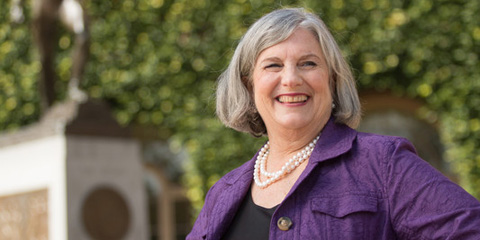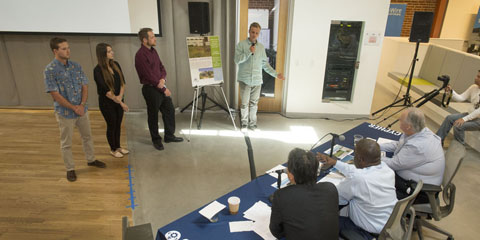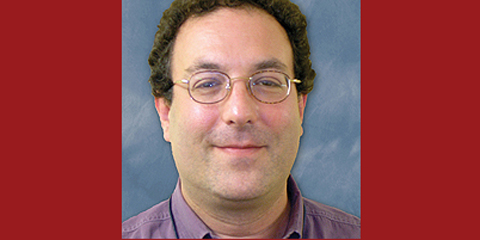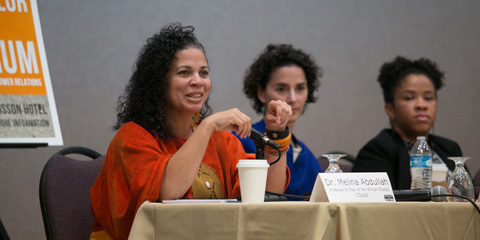News Archive
-

Ellen Olshansky often tells a story that is a reflection of her personal passion for social work. “My aunt, who was a big force in my life, was a psychiatric social worker, and as children, my cousin and I would play ‘social work’ – in the way that kids sometimes play doctor or teacher,” she recalled. “We would create diagnoses for our patients and put them on file cards that we kept in a shoebox. We didn’t know any of the correct terminology, so we would write things like ‘this person is afraid to go outside, and we need to take her outside gradually.’”
-

One of USC’s foremost experts on homelessness and HIV/AIDS will share her knowledge with promising scholars as part of a prestigious national mentoring initiative.
-

Alumni, family and friends of the USC School of Social Work focused their efforts on helping the homeless during the 2016 USC Alumni Day of SCervice. The event gave thousands of Trojans the opportunity to participate in local service volunteer projects organized by USC alumni club chapters and other affiliated groups. There were more than 110 projects worldwide this year.
-

A mixture of excitement and nervousness fills the air. Young people from all over the world present ideas for everything from mobile phone apps that help farmers wirelessly manage irrigation systems to a concept for a zero-emission freight corridor along a busy highway.
At stake: cash prizes and the opportunity to have their ideas become reality.
-

USC Trustee Daniel M. Tsai and his wife, Irene Chen, MA ’83, were concerned about the growing aging society in Taiwan, a country that has faced challenges with low fertility rates in recent decades. Both have aging parents themselves and wanted to find a way to empower older adults through technology.
-

In 2011, Michelle Obama and Jill Biden announced Joining Forces, an initiative to better support members of the U.S. military and their families.
-

I participated in two recent watershed cultural and transformational moments. Both instances occurred at university-centered conferences, not always the contexts of epiphany and emotional social change — but indeed, that is where they occurred. I’m now filled with hope that universities can collectively join forces with public schools to support military-connected and veteran students.
-

Veterans across the nation are unprepared for life after military service, according to a new University of Southern California study.
A report by the Center for Innovation and Research on Veterans & Military Families (CIR) at the USC School of Social Work of veterans living in and around Chicago found that a majority of veterans, primarily those serving after the Sept. 11 terrorist attacks, experienced transition challenges and needed time to figure out what to do after the military.
-

Graduate students from the USC School of Social Work and USC Price School of Public Policy confronted the fallacy of “race-neutral” policies April 2 at the third annual Students of Color and Allies Policy Forum (SCAPF).
-
In order to draw attention to the difficulties children in military and veteran families face in schools, Jill Biden, wife of U.S. Vice President Joe Biden highlighted Operation Educate the Educators, a federal initiative, during a discussion last Monday at the annual conference for the American Educational Research Association.